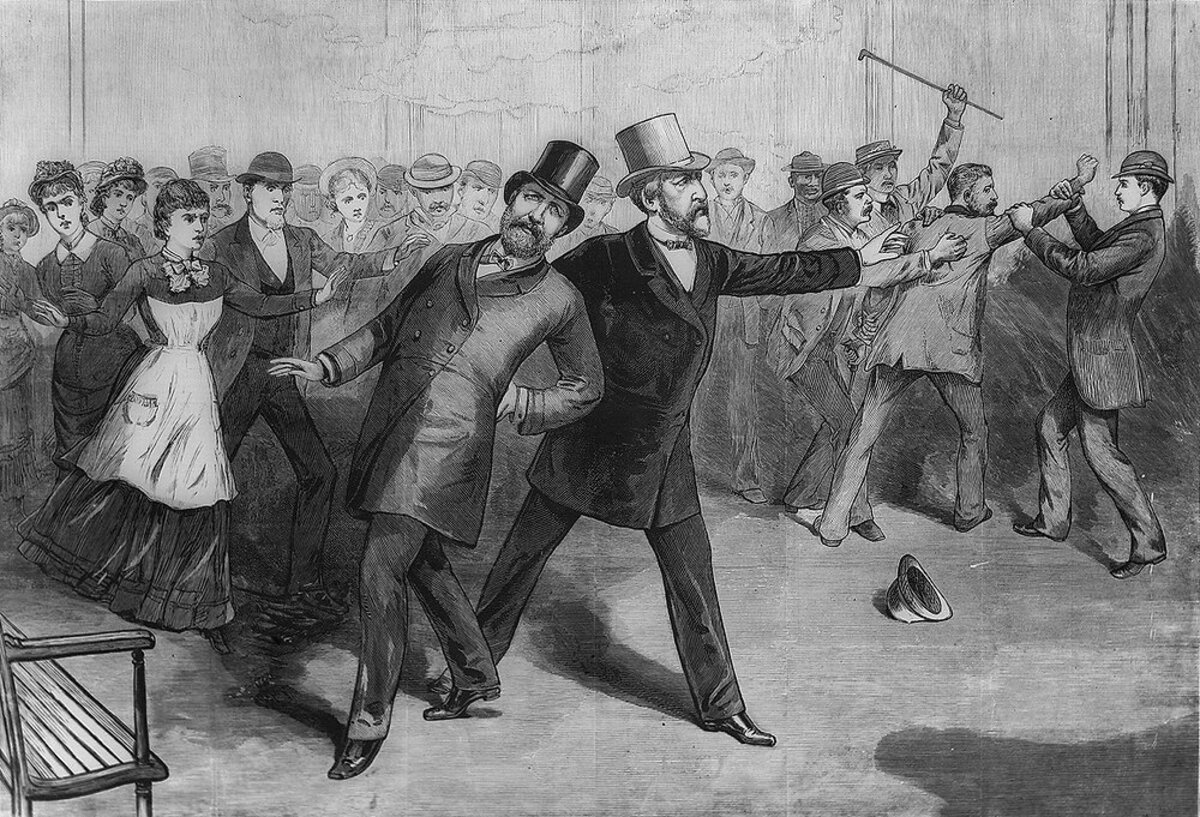
Who was Charles Guiteau? Charles Guiteau is best known as the man who assassinated President James A. Garfield in 1881. Born in Freeport, Illinois, Guiteau's life was a mix of failed ventures, religious fanaticism, and mental instability. He believed he was divinely inspired to kill Garfield, thinking it would unite the Republican Party and secure him a government job. His trial was one of the first high-profile cases to explore the insanity defense. Despite his erratic behavior and clear signs of mental illness, he was found guilty and executed in 1882. Guiteau's actions and trial left a lasting impact on American legal and political history.
Key Takeaways:
- Charles Guiteau's tumultuous life led to the assassination of President Garfield, sparking legal reforms and public fascination with his case.
- Guiteau's delusional political ambitions and erratic behavior culminated in a shocking act that left a lasting impact on American history and the legal system.
Early Life and Background
Charles Guiteau's life was marked by a series of unusual events and decisions that led to his infamous act. Here are some intriguing facts about his early years.
- Born on September 8, 1841, in Freeport, Illinois, Guiteau was the fourth of six children.
- His mother, Jane August Guiteau, died when he was just seven years old.
- Guiteau's father, Luther Wilson Guiteau, was a fervent follower of the religious movement known as the Oneida Community.
- He attended the University of Michigan but dropped out after only one term.
- Guiteau attempted to join the Oneida Community but was rejected due to his erratic behavior.
Career and Personal Life
Guiteau's career was as unstable as his personal life. He dabbled in various professions, none of which brought him success.
- He worked briefly as a lawyer, despite having no formal legal education.
- Guiteau tried his hand at preaching, but his sermons were often incoherent and poorly received.
- He wrote a book titled "The Truth," which was a plagiarized version of John Humphrey Noyes' work.
- Guiteau married Annie Bunn in 1869, but the marriage was short-lived due to his abusive behavior.
- He attempted to start a newspaper called "The Daily Theocrat," which failed miserably.
Political Aspirations
Guiteau's political ambitions were grandiose and delusional, leading him down a dark path.
- He believed he played a significant role in James A. Garfield's presidential victory.
- Guiteau expected a diplomatic appointment as a reward for his "efforts" in Garfield's campaign.
- After being repeatedly denied a position, he became increasingly frustrated and unstable.
- He began to stalk President Garfield, convinced that he was destined to save the Republican Party.
- Guiteau purchased a British Bulldog revolver, believing it would look good in a museum after he used it to assassinate Garfield.
The Assassination of President Garfield
The most notorious act of Guiteau's life was the assassination of President James A. Garfield.
- On July 2, 1881, Guiteau shot Garfield at the Baltimore and Potomac Railroad Station in Washington, D.C.
- Garfield survived the initial shooting but succumbed to infections caused by his wounds on September 19, 1881.
- Guiteau was immediately arrested at the scene of the crime.
- He claimed that he was acting on God's orders to remove Garfield from office.
- Guiteau's trial was one of the first high-profile cases to use the insanity defense.
Trial and Execution
Guiteau's trial and execution were as dramatic as the rest of his life.
- His trial began on November 14, 1881, and lasted nearly two months.
- Guiteau often disrupted the court proceedings with outbursts and erratic behavior.
- He insisted on representing himself, despite having no legal expertise.
- The jury found him guilty of murder on January 25, 1882.
- Guiteau was sentenced to death by hanging.
Legacy and Impact
Guiteau's actions had a lasting impact on American politics and the legal system.
- His assassination of Garfield led to the Pendleton Civil Service Reform Act, which aimed to reduce corruption in government hiring.
- Guiteau's trial highlighted the need for better mental health evaluations in the legal system.
- His case remains a significant example of the use of the insanity defense in American jurisprudence.
- Guiteau's life and actions have been the subject of numerous books, plays, and even a musical.
- His revolver is displayed at the Smithsonian Institution as a grim reminder of his crime.
Miscellaneous Facts
Here are some additional interesting tidbits about Charles Guiteau.
- He believed he would be hailed as a hero after Garfield's death.
- Guiteau wrote a poem titled "I Am Going to the Lordy" on the day of his execution.
- He requested an orchestra to play at his execution, a request that was denied.
- Guiteau's brain was studied after his death to understand his mental state.
- His autopsy revealed signs of syphilis, which may have contributed to his erratic behavior.
- Guiteau's last words were, "Glory hallelujah! I am going to the Lordy!"
- His execution was witnessed by a large crowd, reflecting the public's fascination with his case.
The Final Act of Charles Guiteau
Charles Guiteau's life was a whirlwind of ambition, delusion, and infamy. His name became synonymous with the assassination of President James A. Garfield, a crime that shocked the nation. Guiteau's erratic behavior and grandiose claims during his trial painted a picture of a deeply troubled individual. Despite his belief that he was acting on divine orders, the jury found him guilty, leading to his execution by hanging in 1882.
Guiteau's story serves as a stark reminder of the impact one person can have on history, for better or worse. His actions not only ended a president's life but also highlighted the need for better mental health awareness and security measures for public officials. While his name may not be as well-known today, the ripples of his deeds continue to be felt in the annals of American history.
Frequently Asked Questions
Was this page helpful?
Our commitment to delivering trustworthy and engaging content is at the heart of what we do. Each fact on our site is contributed by real users like you, bringing a wealth of diverse insights and information. To ensure the highest standards of accuracy and reliability, our dedicated editors meticulously review each submission. This process guarantees that the facts we share are not only fascinating but also credible. Trust in our commitment to quality and authenticity as you explore and learn with us.


